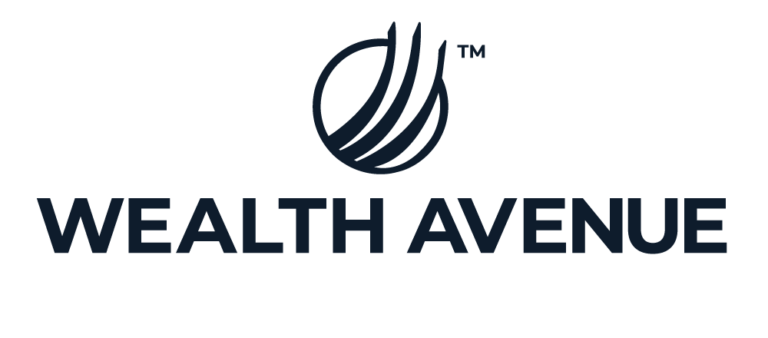
Xerxes Nabong, CFP®, CDFA®
Philip M. Maliniak, CRPC®
Nicole Brown-Griffin, CFP®, CDFA®, EA
Aaron Petty, Client Associate
Hampton Roads: (757) 394-3486
Greater Phoenix: (480) 687-9339
Orange County: (949) 660-8869
New Year, New Goals
Make 2025 the Year You Take Control of Your Financial Future
As we welcome the new year, it’s the perfect opportunity to reevaluate your financial objectives and ensure you’re on track for a secure and prosperous future. Here are actionable steps to help you succeed in 2025:
1. Set SMART Financial Goals
- Specific: Define your goals clearly, whether it’s maximizing your IRA contributions, paying off debt, or saving for a dream vacation.
- Measurable: Set benchmarks to track progress, such as saving $500/month for retirement or increasing your 401(k) contributions by 1 or 2%.
- Achievable: Stay realistic about what you can accomplish based on your current income and expenses.
- Relevant: Focus on objectives that align with your broader financial plan.
- Time-Bound: Create deadlines to stay accountable and motivated.
2. Revisit Your Retirement Contributions
Maximize your retirement savings by contributing to employer-sponsored plans like 401(k)s or 403(b)s. For 2025, the contribution limits are $23,000, with an additional $7,500 for those aged 50 and older.
DID YOU KNOW? Starting this year, the SECURE 2.0 Act introduces enhanced catch-up contributions for individuals aged 60 to 63. This provision allows eligible participants to contribute the greater of $10,000 or 150% of the standard catch-up limit, which is $7,500 for 2025. As a result, the enhanced catch-up limit for 2025 is $11,250.
This means individuals aged 60 to 63 can contribute up to $34,750 to their 401(k) plans in 2025, combining the standard contribution limit of $23,500 with the enhanced catch-up contribution of $11,250.
(Please note: This enhanced catch-up contribution applies only to participants aged 60 through 63 during the calendar year. Upon reaching age 64, participants revert to the standard age 50+ catch-up contribution limit.)
3. Consider a Roth Conversion or Direct Contributions
Evaluate whether converting some of your traditional IRA to a Roth IRA is right for you. Roth IRAs provide tax-free income in retirement, which is especially advantageous if you anticipate higher tax brackets in the future. Alternatively, you can directly fund a Roth IRA if your income qualifies. For 2025, the contribution limit for Roth IRAs is $7,000, with an additional $1,000 catch-up contribution for those aged 50 and older, allowing up to $8,000 annually.
4. Establish an Emergency Fund
Build or maintain a cash reserve of 3-6 months’ worth of expenses. For those in commission-based industries or self-employed roles, aim for 12 months of expenses. This reduces the likelihood of dipping into retirement savings for unexpected costs.
5. Monitor Your Investments
Since your last investment review, do you feel differently about your long-term investment risk tolerance? Review your portfolio to ensure it aligns with your current risk tolerance and retirement timeline. This includes monitoring your employer retirement accounts, real estate, and investments outside of your portfolio. Rebalance as needed to maintain your ideal mix of stocks, bonds, and other assets.
6. Plan for Healthcare Costs
If you’re nearing retirement, plan for healthcare expenses, including being mindful of income levels that can affect Medicare and Part D premiums. Contributing to a Health Savings Account (HSA) offers tax advantages and helps prepare for future medical costs.
7. Think About Non-Financial Goals
Retirement is about more than just money—it’s what you do with your time. Think about what your life would be like when you have 8, 10, or 12 hours a day to do what you want. Reflect on how you want to spend that time—whether it’s volunteering, traveling, or starting a new hobby—and start planning to make those dreams a reality.
8. Let’s Review Your Financial Plan
As your wealth advisory team, we’re here to help you navigate every step of your journey. Together, we can review your current plan and address any changes in your life or financial situation to ensure you’re on track for your future goals. We’ll refine your strategy as needed to keep your financial future secure and help you achieve your aspirations.
We look forward to collaborating with you to make this your most successful financial year yet. Contact us today to continue our ongoing collaborative approach.

P.S. Feeling good about your financial plan but know someone who could use expert guidance? We’re open to introductions and would be honored to support anyone you introduce us to. With offices in Virginia, Arizona, and California—plus the convenience of virtual meetings—we’re here to help clients wherever they are.
And lastly, since we’re diving into New Year financial goals, why not tackle health goals too? Check out this article on New Year weight loss strategies—spoiler alert: ditch the sugary drinks, embrace plain water, and give both your wallet and waistline a reason to celebrate!






